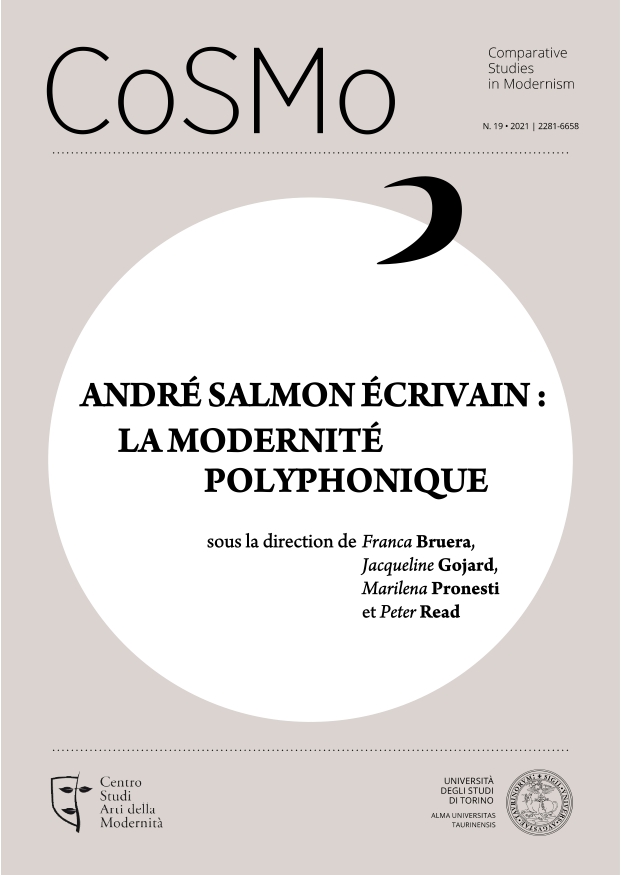“Le faux n’est révéré que pour l’amour du vrai”
Salmon and “Prikaz”
DOI:
https://doi.org/10.13135/2281-6658/6345Keywords:
André Salmon, Revolution, Modernism, Avant-garde, AuthenticityAbstract
This article argues that André Salmon’s Prikaz (1919) mounts a virulent critique of pre-World War I aestheticism through an obsessive return to the idea of falsity – false appearances, inauthenticity, the counterfeit, and related leitmotive. On the one hand, the poem proposes itself as “mere” play, a carnival that’s all for show; on the other, this representational “fake” concerns real horrors and atrocities. Although Salmon explicitly suggests that he reserves all judgment with regard to the Revolution, the poem seems to demand that the reader judge for her own sake whether historical atrocities are an acceptable object for a playful, poeticized representation. In the wake of the historical trauma of World War I, the Revolution, and the Spanish flu, this voluntary ambiguity seems to tempt the reader to decide one way or the other – and it proves difficult not to condemn the pre-war aestheticism Salmon stages.
Downloads
Downloads
Published
Issue
Section
License
Authors keep the copyrights for their work and give the journal the work’s first publication copyright, which is at the same time licensed under a Creative Commons License – Attribution, which in turn allows other parties to share the work with an acknowledgement of the work's authorship and initial publication in this journal.
Content Licence

You are free to copy, distribute and transmit the work, and to adapt the work. You must attribute the work in the manner specified by the author or licensor (but not in any way that suggests that they endorse you or your use of the work).
Metadata licence

CoSMo published articles metadata are dedicated to the public domain by waiving all publisher's rights to the work worldwide under copyright law, including all related and neighboring rights, to the extent allowed by law.
You can copy, modify, distribute and perform the work, even for commercial purposes, all without asking permission.






